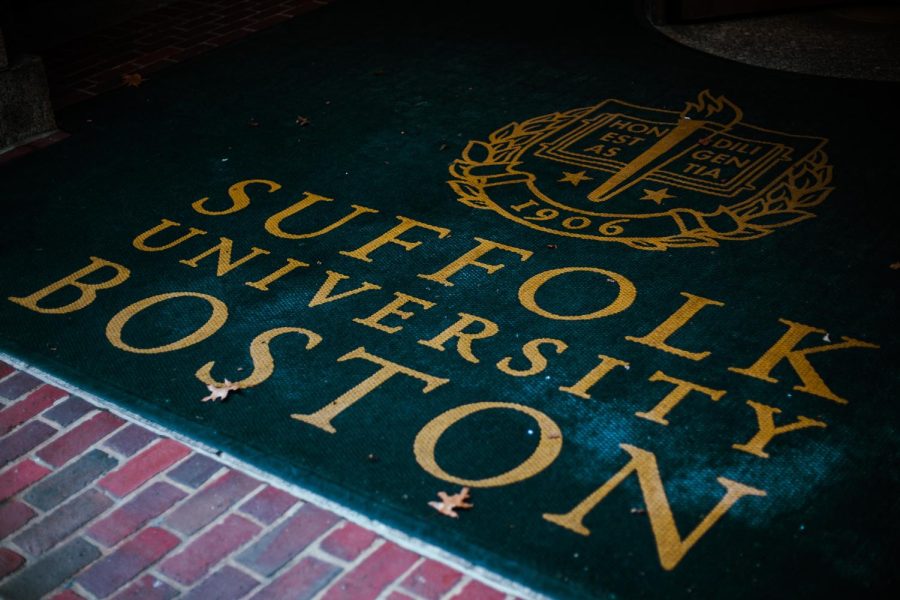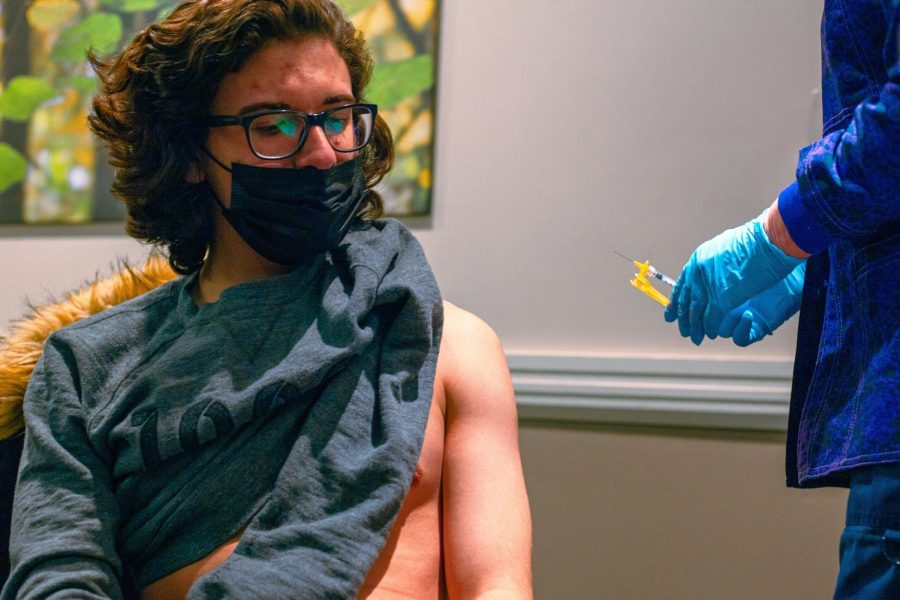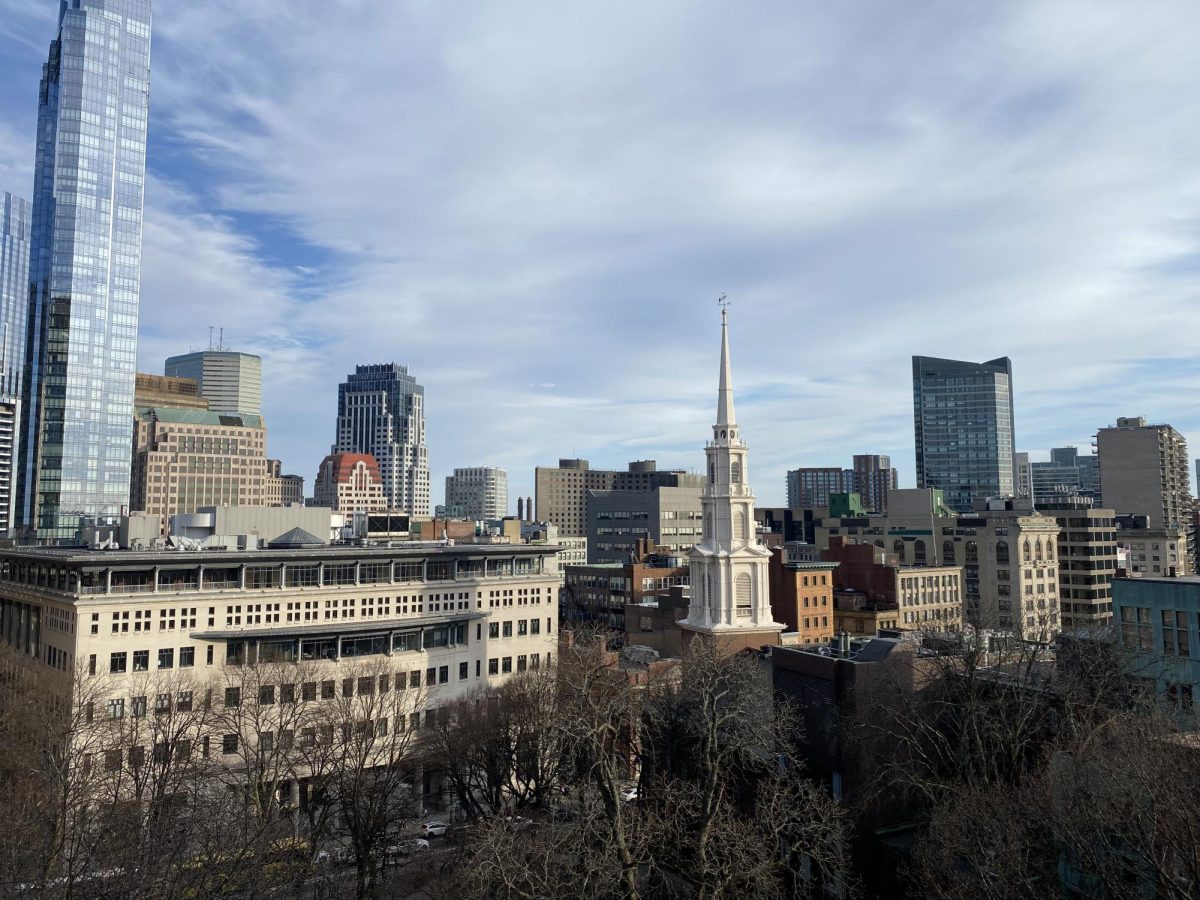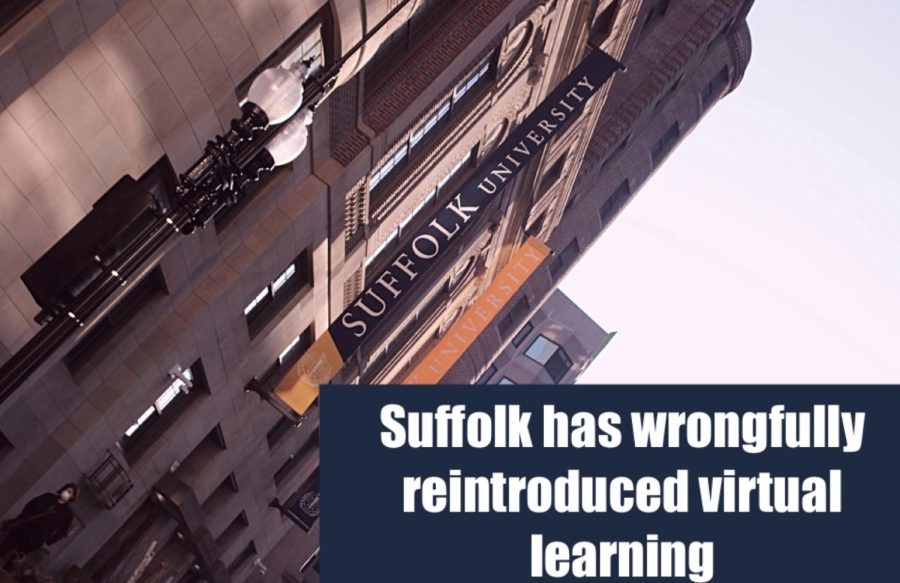College students across the U.S. have been facing the challenge of online learning and adjusting to the new difficulties that come with earning a degree. Online learning has presented students with several changes, including how teaching instructions are received, as well as a change in attitude about the value of a degree.
In Boston, many colleges and universities opted for a hybrid model of learning in the fall 2020 semester, mixed with some fully remote classes. At Harvard University, all classes were delivered online this past semester. Suffolk University and other nearby schools, like Boston University, MIT and Emerson College delivered their instruction through a mix of in person and online classes, according to the Boston Herald. In order to make the return for students as safe as can be, many universities provided on-site COVID-19 testing, which was mandatory for students on campus.
Students across the city have developed strong opinions about online learning based on their experiences this past semester.
Stephen Rykola, junior business management major at Suffolk, shared that he wishes his online education could reap the benefits that an in person education does.
“The education I have received this semester is definitely subpar compared to previous semesters,” said Rykola.
It is no secret that students are frustrated with universities that do not have financial flexibility with tuition and fees. More students are considering taking gap years and attending college at a later date.
Dom Odoguardi, a junior entrepreneurship and marketing major, explained that a gap year may be the best option for some students.
“If you want to take a gap year, it could really help,” said Odoguardi. “If you are not willing to spend the money for an education that you know is subpar, then save your money and come back to school when things are not online and focus on what’s best for your path to success.”.
Gap years are increasing in popularity now that many students are disinterested in virtual learning. Gap years can consist of traveling, working or other activities that can promote personal and professional growth.
“I can understand why students would want to take a gap year. If I’m not getting the same value of education and paying the same price why would I do it?” said Rykola.
Along with the majority of other universities in the Boston area, Suffolk did not lower its tuition for students this past semester. Despite the fact that all instruction was remote, tuition remained the same price as the previous academic year.
The general consensus among college-aged students seems to be that more financial aid should be offered or fees and tuition should be reduced. However, some students feel the opposite.
Odoguardi understands that universities are businesses that need to make money.
“Colleges are businesses and like any business, they need cash flow and money to survive and to grow their university,” said Odoguardi.
With the help of the Student Government Association, Suffolk was able to eliminate the activity fee for students this past semester. Unfortunately, this fee, which is normally around $90.00, is only a small financial relief for many students.
The cost of a college education provides more than just four or five classes worth of instruction. Attending and paying for college typically enables students to meet with professors, attend networking events and benefit from on campus activities. Although it is still possible for these kinds of events to happen at universities, they are not as popular as they were in previous semesters.
Suffolk students, like Chryssabella Craig, a junior law major, have noticed the negative impacts of the absence of these events.
“The network and connections you make to find a career were missing this semester. Being online made that 10 times harder,” said Craig. “When you pay for a college education, you are paying for the relationships you grow with your professors which will turn into a job and ultimately a career.”
Not only has the instruction portion of college changed due to the COVID-19, but so has the concept of making connections to increase your chances of finding a job once students graduate.
Some students have gone above and beyond to make connections with professors by meeting with them outside of class in a private Zoom meeting. Depending on the professor’s attitude towards virtual instruction, some may be more open to this than others.
“Due to the lack of in person classes, I made more of an effort to reach out to professors. One of my professors asked me to send her my resume so she could help me professionally with finding a career,” said Craig. “All I had to do was set up a meeting with her and I was lucky to have that opportunity.”
In order for students to make these connections with professors, they need to take the extra step to set up a Zoom meeting, whereas in previous semesters they would be able to talk to them after class or attend in person office hours.
Odoguardi is a Sawyer Ambassador in the Sawyer Business School at Suffolk. He explained that variety and adaptability are the most important skills to have on a resume when students are applying for jobs after graduation.
“Employers want to see candidates who are able to do several different things. They want you to focus on studying and working, but in the business world, employers want to see that you are well rounded in different areas of business,” said Odoguardi. “We need to be adaptable. We need to realize what the problem is and find a solution for it.”
The actions of many universities do not align with the needs of their students. The pandemic has brought many problems to light within the higher education system—and the true intentions of students, faculty members and employers. The vaccine brings hope to all members of the higher education community, however, we are still waiting for final answers in order to feel comfortable.
As for now, students will have to make a decision about whether or not they are content with paying for an online education, ultimately sacrificing the benefits of an in person education.


















